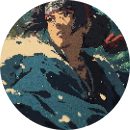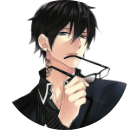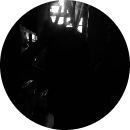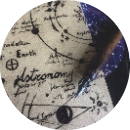Our ...... (discuss) about reusing trash in the city is .....(excitement

Những câu hỏi liên quan
)Nowadays the ........(transmit) of news is very fast
2)Lets .....(congratulation) him for winning the race
3) Our ...... (discuss) about reusing trash in the city is .....(excitement)
4)Nam runs fast. Hes the....(led) of the group
5)......(safe) first when we use electic appliances
6)there are a lot of ......(participate ) in the Olympic Games
7) We need to improve his.....(pronounce) of the new words
8) Hes filling out his......(apply) form. Hes an .....(apply)
Đọc tiếp
)Nowadays the ........(transmit) of news is very fast
2)Let's .....(congratulation) him for winning the race
3) Our ...... (discuss) about reusing trash in the city is .....(excitement)
4)Nam runs fast. He's the....(led) of the group
5)......(safe) first when we use electic appliances
6)there are a lot of ......(participate ) in the Olympic Games
7) We need to improve his.....(pronounce) of the new words
8) He's filling out his......(apply) form. He's an .....(apply)
)Nowadays the ...TRANSIMISSION..(transmit) of news is very fast
2)Let's .CONGRATULATE....(congratulation) him for winning the race
3) Our ...DISCUSSION.. (discuss) about reusing trash in the city is ..EXCITING...(excitement)4)Nam runs fast. He's the..LEADER..(led) of the group
5)..BE SAFE....(safe) first when we use electic appliances
6)there are a lot of ...PARTICIPANTS...(participate ) in the Olympic Games
7) We need to improve his.PRONUNCIATION....(pronounce) of the new words
8) He's filling out his....APPLICATION..(apply) form. He's an ..APPLICANT...(apply)
Đúng 0
Bình luận (0)
Sắp xếp các từ sau để có câu hoàn chỉnh
1. is/ polluting/ land/ the/ and/ what/ ocean/ the?
2. things/ Vietnam/ recycle/ people/ in/ many
3. should/ can/ our/ leave/ we/ trash/in /a
4. do/ more/ food/ people/ why/need?
5. Hanoi/ in/is/ lot/ traffic/ a/ there/ of
6. world/ biggest/ is/ the/ in/ city/ Mexico City/ the
Sắp xếp các từ sau để có câu hoàn chỉnh
1. is/ polluting/ land/ the/ and/ what/ ocean/ the?
WHAT IS POLLUTING THE LAND AND THE OCEAN ?
2. things/ Vietnam/ recycle/ people/ in/ many
PEOPLE IN VIETNAM RECYCLE MANY THINGS
3. should/ can/ our/ leave/ we/ trash/in /a
WE SHOULD LEAVE OUR TRASH IN A CAN
4. do/ more/ food/ people/ why/need?
WHY DO PEOPLE NEED MORE FOOD ?
5. Hanoi/ in/is/ lot/ traffic/ a/ there/ of
THERE IS A LOT OF TRAFFIC IN HA NOI .
6. world/ biggest/ is/ the/ in/ city/ Mexico City/ the
MEXICO IS THE BIGGEST CITY IN THE WORLD
Đúng 0
Bình luận (0)
Work in groups. Choose a city you know. Discuss and answer the questions below.
- What city is it?
- What is it like? (the weather, the food...)
- What can you see and do there?
- How do you feel about it?
- It’s Vũng Tàu city.
(Đó là thành phố Vũng Tàu.)
- It has many beautiful beaches, the weather is usually cool, seafood is fresh, cheap and delicious.
(Nơi đây có nhiều bãi biển đẹp, thời tiết mát mẻ, hải sản tươi, rẻ và ngon.)
- In Vũng Tàu city, I can cycle along the beach, do sightseeing, climb mountains, take beautiful photos, swim in the sea and play on the beach, enjoy special food and seafood, buy souvenirs.
(Tại thành phố Vũng Tàu, tôi có thể đạp xe dọc theo bãi biển, ngắm cảnh, leo núi, chụp ảnh đẹp, tắm biển và vui chơi trên bãi biển, thưởng thức hải sản đặc sản, mua quà lưu niệm.)
- It’s really great to be in Vũng Tàu city. It’s a liveable place.
(Thật tuyệt khi ở thành phố Vũng Tàu. Đó là một nơi đáng sống.)
Đúng 0
Bình luận (0)
Work in groups. Talk about the typical food in your area. Discuss the following.
- staple food
- favourite food
- foods eaten on special occasions
Example:
A: What is the staple food in your area?
B: It's rice.
C: Yes. We have rice with most of our meals.
...
Tham khảo
A: What is the staple food in your country?
(Thực phẩm thiết yếu ở quốc gia bạn là gì?)
B: It’s rice. People eat rice all day. And we cannot live without rice.
(Là cơm. Người ta ăn cơm cả ngày. Và họ cũng không thể sống nếu thiếu cơm.)
A: What’s your favourite food?
(Món ăn ưa thích của bạn là gì?)
B: It’s fried chicken and spring roll. I never getting tired of eating these food.
(Gà chiên và nem rán. Mình chưa bao giờ chán ăn mấy món này.)
A: What do you usually eat on special occasion?
(Bạn thường ăn gì vào dịp đặc biệt?)
B: On special day, my family gathers at our favourite café and enjoy a dish called ‘bun bo’.
(Vào những ngày đặc biệt thì gia đình mình tập trung ở quán quen và thưởng thức một tô bún bò.)
Đúng 0
Bình luận (0)
Put these sentences into the correct order to make a complete dialogue. Which city do you think is the most crowded in our country, Hoa?· Its about 9 million in HCM City, and about 8 million in Ha Noi.· How many people are there in these two cities?· Right.· So, there are fewer people in Ha Noi than in HCM City.· Ha Noi, I guess.· No. Its Ho Chi Minh City, exactly.
Đọc tiếp
Put these sentences into the correct order to make a complete dialogue.
Which city do you think is the most crowded in our country, Hoa?
· It's about 9 million in HCM City, and about 8 million in Ha Noi.
· How many people are there in these two cities?
· Right.
· So, there are fewer people in Ha Noi than in HCM City.
· Ha Noi, I guess.
· No. It's Ho Chi Minh City, exactly.
1 Which city do you think is the most crowded in our country, Hoa?
4 It's about 9 million in HCM City, and about 8 million in Ha Noi.
3 How many people are there in these two cities?
6 Right.
5 So, there are fewer people in Ha Noi than in HCM City.
2 Ha Noi, I guess.
3 No. It's Ho Chi Minh City, exactly.
Đúng 1
Bình luận (0)
Which city do you think is the most crowded in our country, Hoa?
· Ha Noi, I guess.
· No. It's Ho Chi Minh City, exactly.
· How many people are there in these two cities?
· It's about 9 million in HCM City, and about 8 million in Ha Noi.
· So, there are fewer people in Ha Noi than in HCM City.
· Right.
Đúng 1
Bình luận (0)
. Which city do you think is the most crowded in our country, Hoa?
· Ha Noi, I guess.
· No. It's Ho Chi Minh City, exactly.
· How many people are there in these two cities?
· It's about 9 million in HCM City, and about 8 million in Ha Noi.
· So, there are fewer people in Ha Noi than in HCM City.
· Right.
Đúng 1
Bình luận (0)
Xem thêm câu trả lời
II. Complete these sentences with some, a , an, any, few, little, lot or lots:
1. I eat ________________banana every morning.
2. The farmers produce _______________ of rice.
3. Do you have ______________ eggs?
4. I can speak a _______________ English.
5. Would you like _________________ tea?
6. She needs a _____________________ of sugar and pour.
7. There are a ________________ people in this room.
8. My mother has cookies. Would you like to eat ________________?
9. Im hungry. I want __...
Đọc tiếp
II. Complete these sentences with "some, a , an, any, few, little, lot or lots":
1. I eat ________________banana every morning.
2. The farmers produce _______________ of rice.
3. Do you have ______________ eggs?
4. I can speak a _______________ English.
5. Would you like _________________ tea?
6. She needs a _____________________ of sugar and pour.
7. There are a ________________ people in this room.
8. My mother has cookies. Would you like to eat ________________?
9. I'm hungry. I want ________________ food.
10. There's ________________ eraser in the box.
III. Sentence building:
1. electricity / should / waste / not / We
=> .....................................................................................................................
2. world / biggest / is / the / in / city / Mexico City / the
=> .................................................................................................................
3. matter / is / What / is / the / Hoa / with ?
=> ................................................................................................................
4. water / color / What / is / the ?
=> ................................................................................................................
5. lot / a / of / traffic / Ha Noi / There / is / in
=> .............................................................................................................
6. street / throw / Don't / in / trash / the
=> .............................................................................................................
7. beef / produce / These / and / lots / milk / cows / of
=> .............................................................................................................
8. eggs / want / does / many / your / How / mother ?
=> .............................................................................................................
IV. Reading comprehension and answer the questions:
Sang is late this morning. He can't have breakfast at home as usual. He eats breakfast when his father is driving him to school. He always has some bread and eggs. When he finishes the bread, he throws the paper onto the road. His father says: "You are polluting our city, Sang."
"But dad, just a piece of paper" he says.
"If everyone does not like this, our city has many and many papers on the street" "There's not trash can in the car or in the bus, dad."
"You should put it in your school bag and leave it in the trash can at school." "I'm very sorry about that, dad."
Answer True, False or Not given:
1. Sang has his breakfast with his father at home. ....................
2. He usually eats some bread and eggs every morning. ....................
3. He throws a piece of paper in the street. ....................
4. His father picks it up and leaves it in the trash can. ....................
5. The papers can make our city polluted. ....................
6. He should put the papers in the trash can at school. ....................
V. Rewrite these sentences:
1. Miss Chi's hair is long and black.
Miss Chi has .........................................................
2. My mother likes drinking milk coffee.
Milk coffee ............................................................
3. Let's take a taxi to the airport.
What about .........................................................?
4. This bag is lighter than that bag.
That bag .................................................................
5. What is the length of the Nile River?
How ..................................................................
III. Sentence building:
1. electricity / should / waste / not / We
=> ...
III. Sentence building:
1. electricity / should / waste / not / We
=> .We should not waste electricity.....................................................................................................................
2. world / biggest / is / the / in / city / Mexico City / the
=> ...Mexico City .is the biggest city in the world............................................................................................................
3. matter / is / What / is / the / Hoa / with ?
=> ....What is the matter with Hoa...?.........................................................................................................
4. water / color / What / is / the ?
=> ....What is the color of water?............................................................................................................
5. lot / a / of / traffic / Ha Noi / There / is / in
=> ....There is a lot of traffic in Ha Noi..........................................................................................................
6. street / throw / Don't / in / trash / the
=> ..Don't throw trash in the street............................................................................................................
7. beef / produce / These / and / lots / milk / cows / of
=> ...These cows produce lots of beef and milk...........................................................................................................
8. eggs / want / does / many / your / How / mother ?
=> ....How many eggs does your mother want?.
................................................................................................................
Đúng 0
Bình luận (0)
I. 1. A
2. Lots
3. Any
4. Little
5. Some
6. Lot
7. Few
8. Some
9. Some
10. An
Đúng 0
Bình luận (0)
Xem thêm câu trả lời
II. Đọc kỹ đoạn văn sau và chọn đáp án đúng cho mỗi câu Mount Everest is the highest mountain in the world. It is also the highest trash pile in the world. About 400 people try to reach the top every year. This many climbers means a lot of trash. It is very dangerous to climb Mt. Everest. The air is very thin and cold. Most people carry oxygen bottles; they could die without it. When the oxygen bottles are empty, people throw them on the ground. When strong winds rip their tents, people l...
Đọc tiếp
II. Đọc kỹ đoạn văn sau và chọn đáp án đúng cho mỗi câu
Mount Everest is the highest mountain in the world. It is also the highest trash pile in the world. About 400 people try to reach the top every year. This many climbers means a lot of trash. It is very dangerous to climb Mt. Everest. The air is very thin and cold. Most people carry oxygen bottles; they could die without it. When the oxygen bottles are empty, people throw them on the ground. When strong winds rip their tents, people leave them behind. They don’t have enough energy to go down the mountain safely. Trash is a terrible problem. Since people first began to climb Mt. Everest, they have left 50,000kilos of trash on the mountain.Several groups have climbed the mountain just to pick up the trash. When people plan to climb the mountain, they have to plan to take away their trash.
Câu 1. What is the main topic of the passage?
A. Wind on the mountain B. A problem with trash | C.Adangerous mountain D. Climbing safely |
Câu 2. Where do climbers put their empty oxygen bottles?
A. On the ground | B. In trash can | C. On their back | D. In their tent |
Câu 3. Why do climbers leave their trash on the mountain?
A. Special groups will pick it up. B. The wind will blow it away. | C. They don’t have the energy to take it away. D. Other climbers will use it later. |
Câu 4. Why do climbers on Mt. Everest carry bottle of oxygen?
A. They are thirsty. B.The weather is cold. | C. The air is very thin. B.Climbing makes them tired. |
|
Câu 5. In line 5, people leave them behind, what does the word them refer to?
A. Tents | B. Oxygen bottles | C. Strong winds | D. Other climbers |
Đọc kỹ đoạn văn sau và chọn đáp án đúng cho mỗi câu Mount Everest is the highest mountain in the world. It is also the highest trash pile in the world. About 400 people try to reach the top every year. This many climbers means a lot of trash. It is very dangerous to climb Mt. Everest. The air is very thin and cold. Most people carry oxygen bottles; they could die without it. When the oxygen bottles are empty, people throw them on the ground. When strong winds rip their tents, people leave...
Đọc tiếp
Đọc kỹ đoạn văn sau và chọn đáp án đúng cho mỗi câu
Mount Everest is the highest mountain in the world. It is also the highest trash pile in the world. About 400 people try to reach the top every year. This many climbers means a lot of trash. It is very dangerous to climb Mt. Everest. The air is very thin and cold. Most people carry oxygen bottles; they could die without it. When the oxygen bottles are empty, people throw them on the ground. When strong winds rip their tents, people leave them behind. They don’t have enough energy to go down the mountain safely. Trash is a terrible problem. Since people first began to climb Mt. Everest, they have left 50,000kilos of trash on the mountain.Several groups have climbed the mountain just to pick up the trash. When people plan to climb the mountain, they have to plan to take away their trash.
Câu 1. What is the main topic of the passage?
A. Wind on the mountain B. A problem with trash | C.Adangerous mountain D. Climbing safely |
Câu 2. Where do climbers put their empty oxygen bottles?
A. On the ground | B. In trash can | C. On their back | D. In their tent |
Câu 3. Why do climbers leave their trash on the mountain?
A. Special groups will pick it up. B. The wind will blow it away. | C. They don’t have the energy to take it away. D. Other climbers will use it later. |
Câu 4. Why do climbers on Mt. Everest carry bottle of oxygen?
A. They are thirsty. B.The weather is cold. | C. The air is very thin. B.Climbing makes them tired. |
|
Câu 5. In line 5, people leave them behind, what does the word them refer to?
A. Tents | B. Oxygen bottles | C. Strong winds | D. Other climbers |
Câu 1. What is the main topic of the passage?
A. Wind on the mountain B. A problem with trash | C.Adangerous mountain D. Climbing safely |
Câu 2. Where do climbers put their empty oxygen bottles?
A. On the ground | B. In trash can | C. On their back | D. In their tent |
Câu 3. Why do climbers leave their trash on the mountain?
A. Special groups will pick it up. B. The wind will blow it away. | C. They don’t have the energy to take it away. D. Other climbers will use it later. |
Câu 4. Why do climbers on Mt. Everest carry bottle of oxygen?
A. They are thirsty. B.The weather is cold. | C. The air is very thin. B.Climbing makes them tired. |
|
Câu 5. In line 5, people leave them behind, what does the word them refer to?
A. Tents | B. Oxygen bottles | C. Strong winds | D. Other climbers |
Đúng 3
Bình luận (0)
Đọc kỹ đoạn văn sau và chọn đáp án đúng cho mỗi câu
Mount Everest is the highest mountain in the world. It is also the highest trash pile in the world. About 400 people try to reach the top every year. This many climbers means a lot of trash. It is very dangerous to climb Mt. Everest. The air is very thin and cold. Most people carry oxygen bottles; they could die without it. When the oxygen bottles are empty, people throw them on the ground. When strong winds rip their tents, people leave them behind. They don’t have enough energy to go down the mountain safely. Trash is a terrible problem. Since people first began to climb Mt. Everest, they have left 50,000kilos of trash on the mountain.Several groups have climbed the mountain just to pick up the trash. When people plan to climb the mountain, they have to plan to take away their trash.
Câu 1. What is the main topic of the passage?
A. Wind on the mountain B. A problem with trash | C.Adangerous mountain D. Climbing safely |
Câu 2. Where do climbers put their empty oxygen bottles?
A. On the ground | B. In trash can | C. On their back | D. In their tent |
Câu 3. Why do climbers leave their trash on the mountain?
A. Special groups will pick it up. B. The wind will blow it away. | C. They don’t have the energy to take it away. D. Other climbers will use it later. |
Câu 4. Why do climbers on Mt. Everest carry bottle of oxygen?
A. They are thirsty. B.The weather is cold. | C. The air is very thin. B.Climbing makes them tired. |
|
Câu 5. In line 5, people leave them behind, what does the word them refer to?
A. Tents | B. Oxygen bottles | C. Strong winds | D. Other climbers |
Đúng 3
Bình luận (0)
Câu 1. What is the main topic of the passage?
A. Wind on the mountain B. A problem with trash | C.Adangerous mountain D. Climbing safely |
Câu 2. Where do climbers put their empty oxygen bottles?
A. On the ground | B. In trash can | C. On their back | D. In their tent |
Câu 3. Why do climbers leave their trash on the mountain?
A. Special groups will pick it up. B. The wind will blow it away. | C. They don’t have the energy to take it away. D. Other climbers will use it later. |
Câu 4. Why do climbers on Mt. Everest carry bottle of oxygen?
A. They are thirsty. B.The weather is cold. | C. The air is very thin. B.Climbing makes them tired. |
|
Câu 5. In line 5, people leave them behind, what does the word them refer to?
A. Tents | B. Oxygen bottles | C. Strong winds |
Đúng 1
Bình luận (0)
Mount Everest is the highest mountain and also the highest trash pile in the world. About 400 people try to reach the top every year. This many climbers means a lot of trash. It is very dangerous to climb Mt. Everest. The air is very thin and cold. Most people carry oxygen bottles; they could die without it. When the oxygen bottles are empty, people throw them on the ground. When strong winds rip their tents, people leave them behind. They don’t have enough energy to go down the mountain safely...
Đọc tiếp
Mount Everest is the highest mountain and also the highest trash pile in the world. About 400 people try to reach the top every year. This many climbers means a lot of trash. It is very dangerous to climb Mt. Everest. The air is very thin and cold. Most people carry oxygen bottles; they could die without it. When the oxygen bottles are empty, people throw them on the ground. When strong winds rip their tents, people leave them behind. They don’t have enough energy to go down the mountain safely with these things. Trash is a terrible problem. Since people first began to climb Mt. Everest, they have left 50,000kilos of trash on the mountain. Several groups have climbed the mountain just to pick up the trash. When people plan to climb the mountain, they have to plan to take away their trash.
26. What is the main topic of the passage?
A. Wind on the mountain B. A problem with trash
C. A dangerous mountain D. Climbing safely
27. Where do climbers put their empty oxygen bottles?
A. On the ground B. In trash can
C. On their back D. In their tent
28. Why do climbers leave their trash on the mountain?
A. Special group will pick it up.
B. They don’t have enough energy to take it away.
C. The wind will blow it away.
D. Other climbers will use it later.
29. Why do climbers on Mt. Everest carry bottles of oxygen?
A. They are thirsty. B. The weather is cold.
C. The air is very thin. D. Climbing makes them exhausted.
30. What does the word “them” in line 5 refer to?
A. tents
B. oxygen bottles
C. strong winds
D. other climbers
26. What is the main topic of the passage?
A. Wind on the mountain B. A problem with trash
C. A dangerous mountain D. Climbing safely
27. Where do climbers put their empty oxygen bottles?
A. On the ground B. In trash can
C. On their back D. In their tent
28. Why do climbers leave their trash on the mountain?
A. Special group will pick it up.
B. They don’t have enough energy to take it away.
C. The wind will blow it away.
D. Other climbers will use it later.
29. Why do climbers on Mt. Everest carry bottles of oxygen?
A. They are thirsty. B. The weather is cold.
C. The air is very thin. D. Climbing makes them exhausted.
30. What does the word “them” in line 5 refer to?
A. tents
B. oxygen bottles
C. strong winds
D. other climbers
Đúng 2
Bình luận (0)
26. What is the main topic of the passage?
A. Wind on the mountain B. A problem with trash
C. A dangerous mountain D. Climbing safely
27. Where do climbers put their empty oxygen bottles?
A. On the ground B. In trash can
C. On their back D. In their tent
28. Why do climbers leave their trash on the mountain?
A. Special group will pick it up.
B. They don’t have enough energy to take it away.
C. The wind will blow it away.
D. Other climbers will use it later.
29. Why do climbers on Mt. Everest carry bottles of oxygen?
A. They are thirsty. B. The weather is cold.
C. The air is very thin. D. Climbing makes them exhausted.
30. What does the word “them” in line 5 refer to?
A. tents
B. oxygen bottles
C. strong winds
D. other climbers
Đúng 1
Bình luận (1)
Xem thêm câu trả lời































